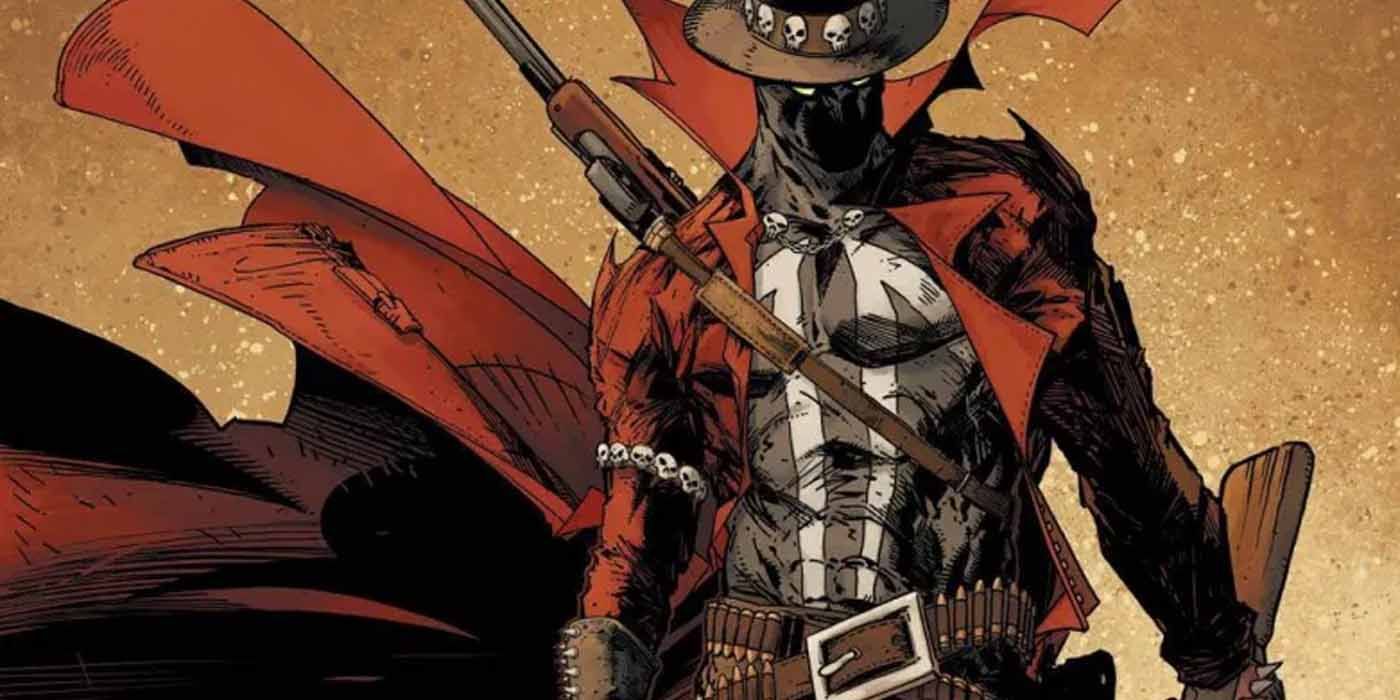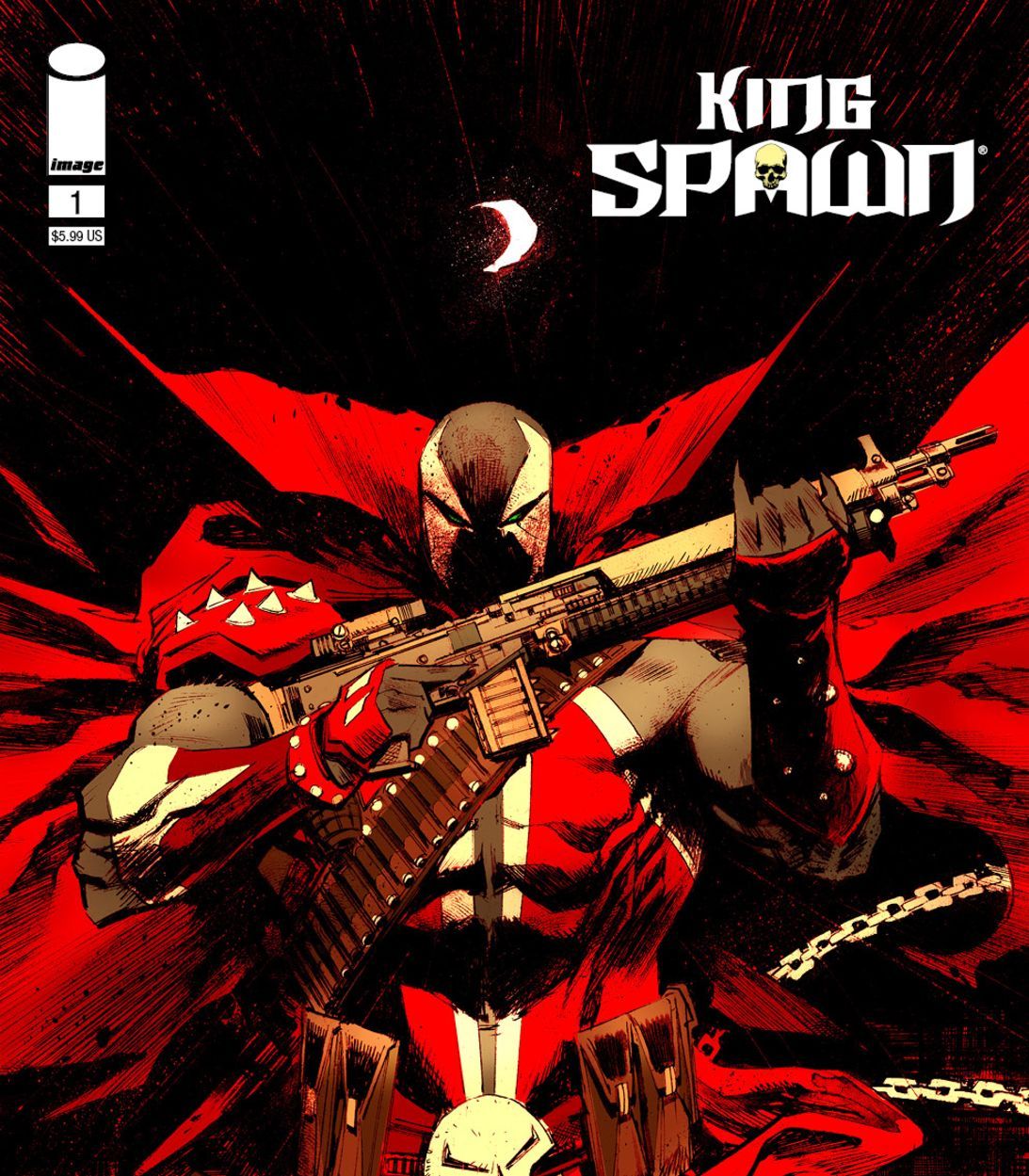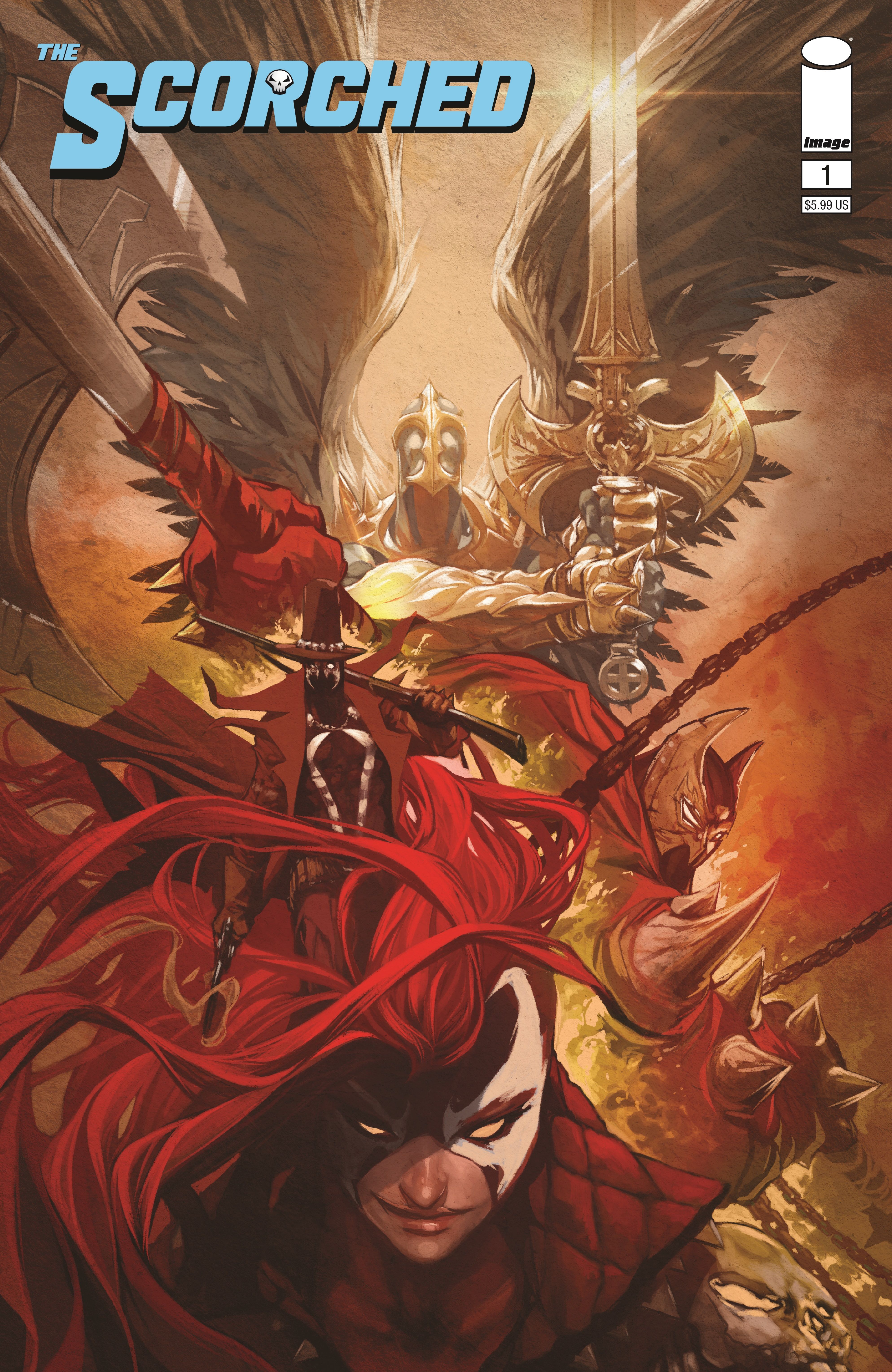
As Spawn creator and Image Comics co-founder Todd McFarlane launches a new ongoing comic book series with Gunslinger Spawn due out this October with its already record-breaking order numbers, he keeps an eye on the future for the hellish superhero. In addition to a recently announced television adaptation, the long-planned cinematic reboot has just signed on screenwriter Brian Tucker to provide the screenplay for the project.
Over on the comic book side of things, the Spawn line is about to add a new ongoing series titled The Scorched. Launching this December, The Scorched is the third new series in the Spawn Universe due out this year and the fourth title in concurrent publication overall. McFarlane sat down exclusively with CBR to reflect on the origins of Spawn and Image Comics while teasing what fans can expect from the franchise's future stories and formats.

Congratulations on King Spawn #1 shattering all those sales records earlier this summer. How does it feel to see that Spawn is still at that level of relevance and validation as it nears its 30th anniversary?
Todd McFarlane: For the time, it's satisfying and gratifying but I would say that any character that you do or story that you tell that lives for decades is going to have its high points and its low points. Somewhere, attrition eventually swings in your direction in a positive fashion. When you look at the history of characters like Superman, Batman, and Spider-Man, we can all point to when everybody was really excited and when there was a sort of malaise with the books or the excitement of it. I do something for thirty years and, every now and again, you're going to phone me and go, "Todd, you're getting it right!" We don't do a lot of interviews when I'm getting it wrong.
This has been possibly the most ambitious year for Spawn ever, with Spawn's Universe, King Spawn, Gunslinger Spawn, and The Scorched at the end of the year. How has it been looking back at all of this?
If you had asked a 25-year old Todd, he would've gone, "It's super cool, we're killing it! Everything is going great!"
It's a hell of an ego stroke. You've got Old Man Todd now and I remember the Monday when we got the numbers for King Spawn #1, it was a staggering number and way beyond what I had imagined. A couple of the people in the office had been working hard and I let them know and they were super excited and, within an hour, I was back scripting the pages for the [main] Spawn comic because that was coming out next week. Although it's nice to have success, I don't do it for the same reasons I had when I was younger when I would sort of beat my chest. Success now is important so that it allows you to go to the next step and do the next piece of the puzzle.
These are all interconnected: Spawn's Universe, if it works, it makes it easier for people to buy copies of King Spawn. And if King Spawn works, they're not risking too much to buy copies of Gunslinger Spawn. The track record and sales data tell [retailers] that it's a safe bet and, consequently, the opposite can happen. If Spawn's Universe failed out of the gate, here's an extension of that failure called King Spawn and you can buy copies from this thing that failed two months earlier, with even more of that failed stuff coming down the pipeline. I knew that they were all going to either rise or sink together by the plan that I had put together, that there was going to be a connection. With Gunslinger Spawn coming out the gate, will it make [retailers and readers] more comfortable with a team book that has a variety of characters, some not as popular as the others? Yeah, because the last three books had an audience buying them that were pretty excited.
Long-term, for all the books and some new books that we've got in development, can they get up to Issue #25, #50, or #100 someday? That's the goal! Can they do what the original Spawn comic book did, which is to survive and survive for a long time? That's the victory and how I've approached all my companies, to survive against giant companies is a victory. Not denting other companies or putting them out of business but just surviving so you can say that you're a little guy and the big guys can't kill me. That's a badge of honor.
Last month it was announced Brian Tucker is going to take a crack at the movie script. What about his vision for the project impressed you to bring him on board?
Well, it wasn't just my decision. There's a handful of other people working on it that we haven't announced yet. One of the people working on it: that is going to be a big name when we finally get to announce it. I think he said he went through close to a hundred scripts by as many people as he could. We were looking ideally for someone that could bring a voice to the character on two levels: I'm just a white, Canadian kid. I haven't lived the life of a man in America of someone with dark skin. We thought it was important to get the perspective of somebody who has, someone with that perspective coming in and adding a slightly different bent to what you and I, as comic book readers, already know as to what Spawn is about.
I didn't want to do the comic book origin story from Issues #1-3 in the movie. We were looking for people, without even telling them that, to give something a little bit different. Unfortunately, 80-90% of them, according to the other person involved who was interviewing most of them, were falling into the trap of retelling the comic book story in the movie. We saw that movie, that movie came out 20+ years ago from New Line. So what haven't we seen that would be interesting and relevant today, both in terms of filmmaking and social content.
We're coming up on Image Comics' 30th anniversary. How is it to see to change and grow for a creator-owned publisher beyond its superhero comic origins?
It came in fits and starts, to be honest.
We were out of the gate with superheroes and stubbed our toes, in terms of our schedules which we were all guilty of. We added some new books and some of those creators didn't want to put out steady work and we hit a bit of a dry spell, with Rob Liefeld and Jim Lee no longer partners at some point. We had to find our footing and not get myopic in thinking that all our books had to be what we grew up on and what we were drawing and writing in our careers.
When we opened up that door, with our publishers Jim Valentino and Erik Larsen, to a wider spectrum and that momentum has been completely fine-tuned almost to science by Eric Stephenson, the current publisher. He has an amazing eye to gauge what books are commercial, not in a superhero way but commercial in that there's an audience for these kinds of stories. He knows and understands that and all he and we're looking for is if there's a level of quality that goes with that idea that goes with what the creators want to do.

Like you said, you're not the man you were when you started Image or Spawn. What perspective on both do you have now that you may not have had years ago?
The biggest perspective is that, for years and years, we were continuing to make moves based on surviving and staying in business and relevance. We're now at the point where we actually have the luxury that we have been around for a long time: we have been and we're going to [continue to be]. The great thing about success with a business is that if you want to get big, strong, and successful enough, you can make a handful of mistakes and it doesn't wreck your business. When you're brand new to any business, sometimes one or two missteps can end it.
I have clarity when Jim Lee said he was leaving because Rob Liefeld was already gone by that point. Jim was doing the majority of our books and he was going to be taking that market share away and we were going to become smaller, maybe to the point of being insignificant. It was a sobering time. One move by one person and the rest of us were sort of gulping but we're now at a point where that's not true. Me and the other partners, even with all the success right now, if I decided to pull all my books and cancel all of them, Image Comics would still do quite well. That's a comforting thing to know that it's going to be hard for us to go away. That's cool that Image Comics is going to survive my lifespan.
You've got at least one more trick up your sleeve this year with The Scorched. What can you tease about Spawn as we see the line continue to expand throughout the year?
Oh, I've got lots of tricks. [laughs]
I would say The Scorched is going to be the easiest book for me and the writer Sean Lewis to creatively introduce new ideas and characters because it's not premised on a single character. When you have a book happily named after your lead character, there's an expectation. You buy Spawn, King Spawn, or Gunslinger Spawn, you're expecting those people to be the lead so it gets hard to introduce some of those bright ideas. In a team book, there should be a natural rotation of people coming and leaving like a sports team. The team is always going to be there but you're going to get different players as time goes by. It's the place where we're going to be able to experiment, by far, the most. Whether or not that's a bad thing, we'll let the readers tell us if we got it right. [laughs] They'll also be telling us which heroes they'd like to see in the book and there may be some surprises going forward.
Written by Sean Lewis and with artwork by Stephen Segovia and Paulo Siqueria, The Scorched #1 goes on sale Dec. 15 from Image Comics.
0 Comments